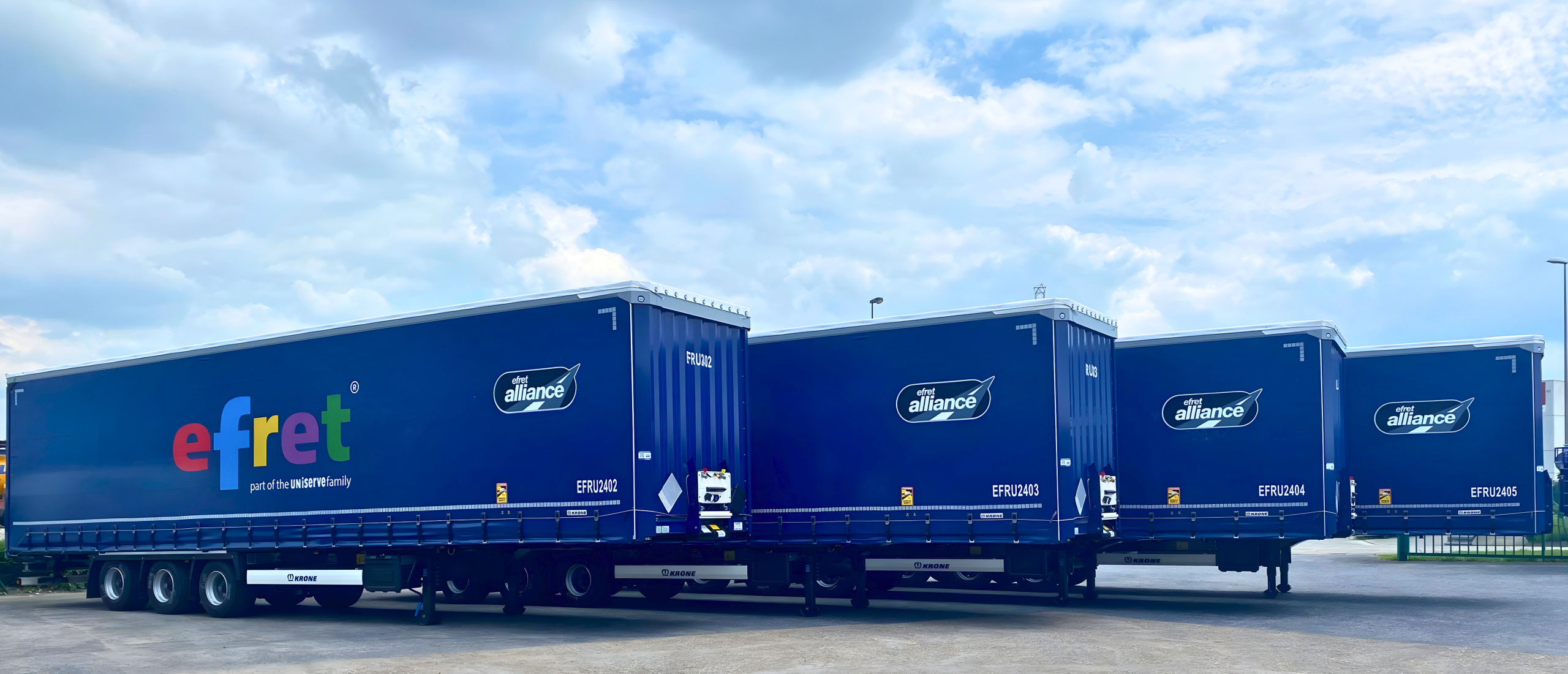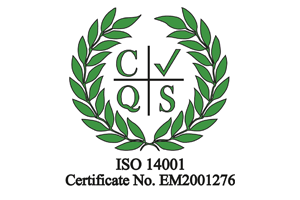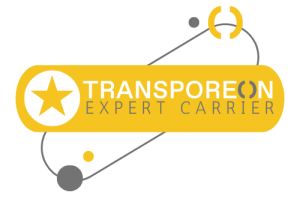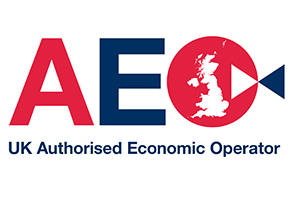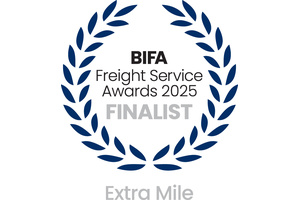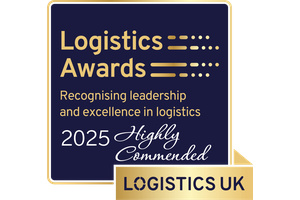European Intermodal Transport – Road, Sea and Rail
To support our client’s decarbonisation objectives, Efret can help shippers reduce their CO2 emissions by up to 50% using the intelligent implementation of intermodal alternatives to road transport.
Efret is a market leader in designing bespoke intermodal solutions, tailored to individual client requirements. We have access to an extensive network of rail, sea and truck providers, and we can select the most efficient combination to blend existing with new services across multiple borders throughout Europe.
By definition, intermodal freight transport consists of transporting goods in a single loading unit, such as a container, swap body or even an adapted road trailer, using a combination of road, rail and sea or other waterways. This approach optimises the relative strengths of each of the modes in terms of flexibility, speed, costs, and environmental performance.
Our mega trailer fleet is XL code compliant, meaning the trailers are fully compatible with intermodal road and rail services. For example, they can be utilised on networks such as the Viia rail connection from Calais to Perpignan that offers a sustainable alternative to road for long distance freight movements from the UK to Spain and vice versa.
The overall benefits of the intermodal concept as an alternative mode of transport can be significant:
Decarbonisation and sustainability:
Intermodal freight reduces CO 2 emissions by removing freight from road. Rail and sea transportation is more fuel efficient than road, reducing air pollution from carbon emissions, supporting decarbonisation and sustainability objectives.
Improved capacity:
Freight ships and trains have greater size and weight capacity than road transport vehicles which can lead to scheduling and productivity improvements. Flexibility and just-in-time requirements can also be enhanced by utilising standby containers or swap bodies.
Equipment optimisation and reliability:
Intermodal gives shippers the advantage of overcoming traffic congestion that slows down delivery when using road transport. Railways, for example, have dedicated infrastructure that makes them less prone to delays, allowing for more reliable delivery.
Freight cost reductions:
Using a combination of transportation modes for different parts of the journey can help shippers optimise cost. For example, rail transport is more fuel efficient than trucks. In addition, cargo that remains in the original container reduces the time, labour and transhipment damage risk involved in transportation, allowing shippers to maximise freight budgets.
Truck driver wellbeing:
The long-haul routes taken by HGV truck drivers often means demanding working hours and lots of time spent away from their families. Intermodal as an alternative not only lets shippers move more volumes without increasing the driver pool, it shortens distances for many drivers creating a better experience, which may encourage more people to enter the profession.
Partnering with Efret opens up new opportunities to develop innovative solutions for our customers, made possible by our extensive knowledge of the European intermodal transport market.
We have direct access to an expanding network of intermodal routes in collaboration with our Uniserve Group companies in strategic locations. For example:
Rail service to and from Poland, Spain and Portugal
Currently operating two block train departures a week to and from the Portuguese rail hub to Poznan in Poland. Routing via Tarragona in Spain and Perpignan in France, this service is run in collaboration with Iberian intermodal specialists KLOG. Last mile delivery and/or collection from the Tarragona hub is available with e-trucks as an option. Due to demand, a third departure is planned for Q4/2024.
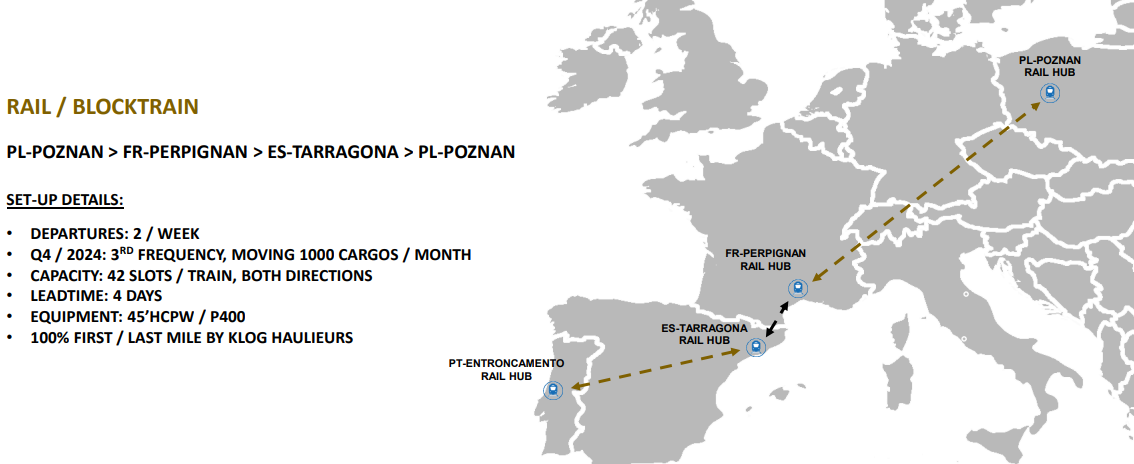
Short sea service to and from Poland and UK
Currently operating two ships sailing in parallel between Gdynia and Tilbury in the south of the UK and Gdynia and Teesport in the north. This service is run in collaboration with short sea specialists Ellerman City Liners, and utilises high-capacity 45’ containers. Last mile deliveries in the UK are available with the option of hydrotreated vegetable oil (HVO) trucks for maximum sustainability.
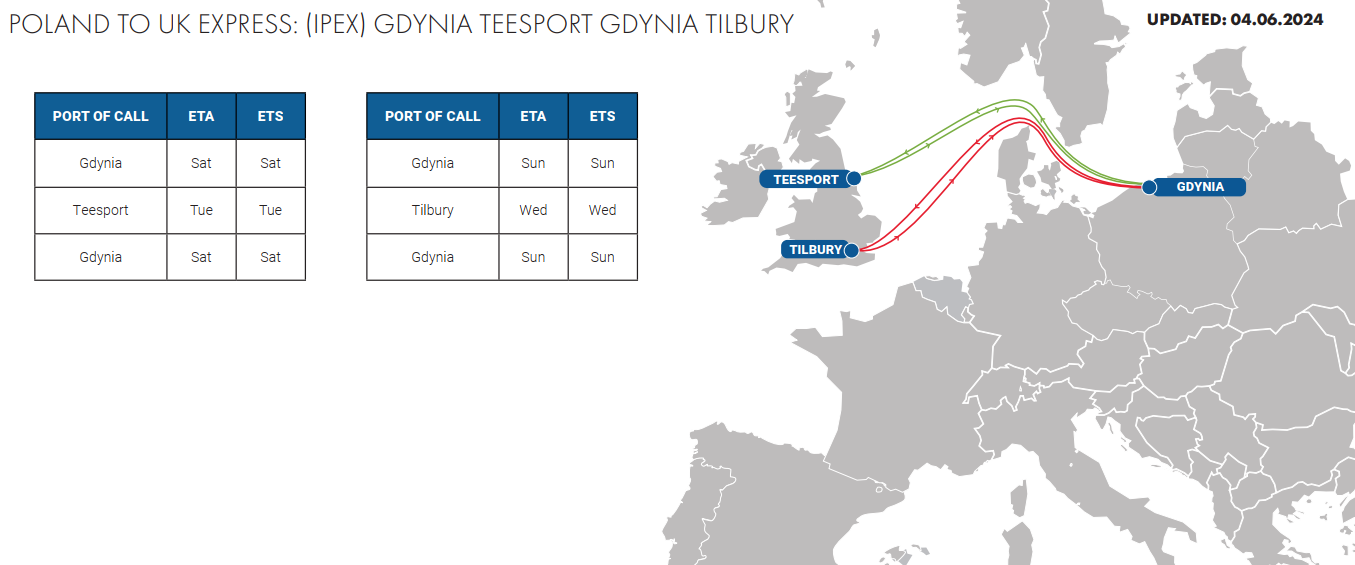
For more information about our intermodal solutions, get in touch with our team.
+ 44 (0) 1202 132 769
sales@efret.net
